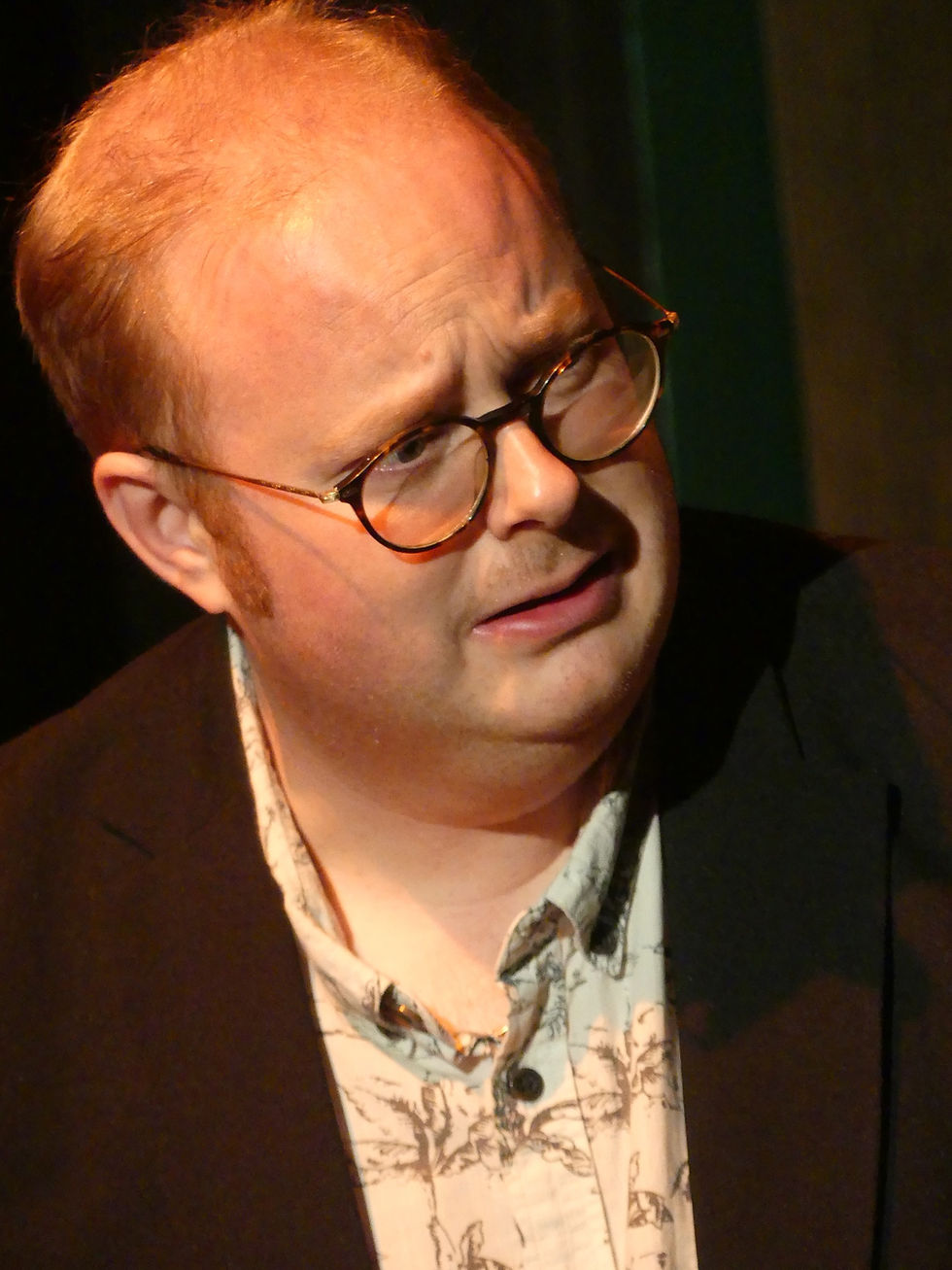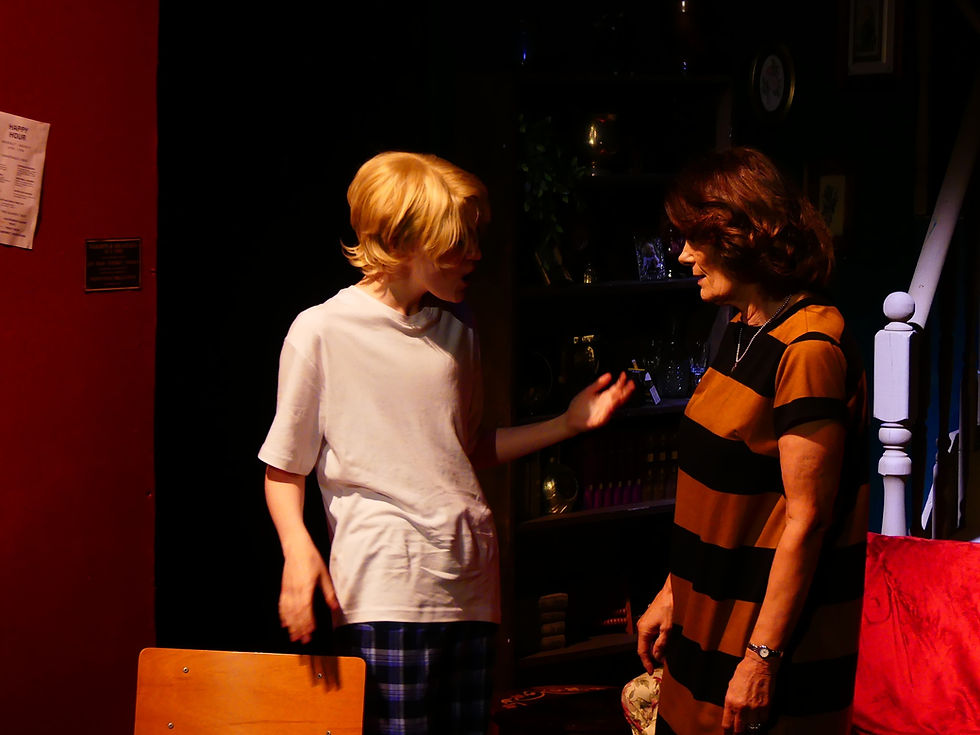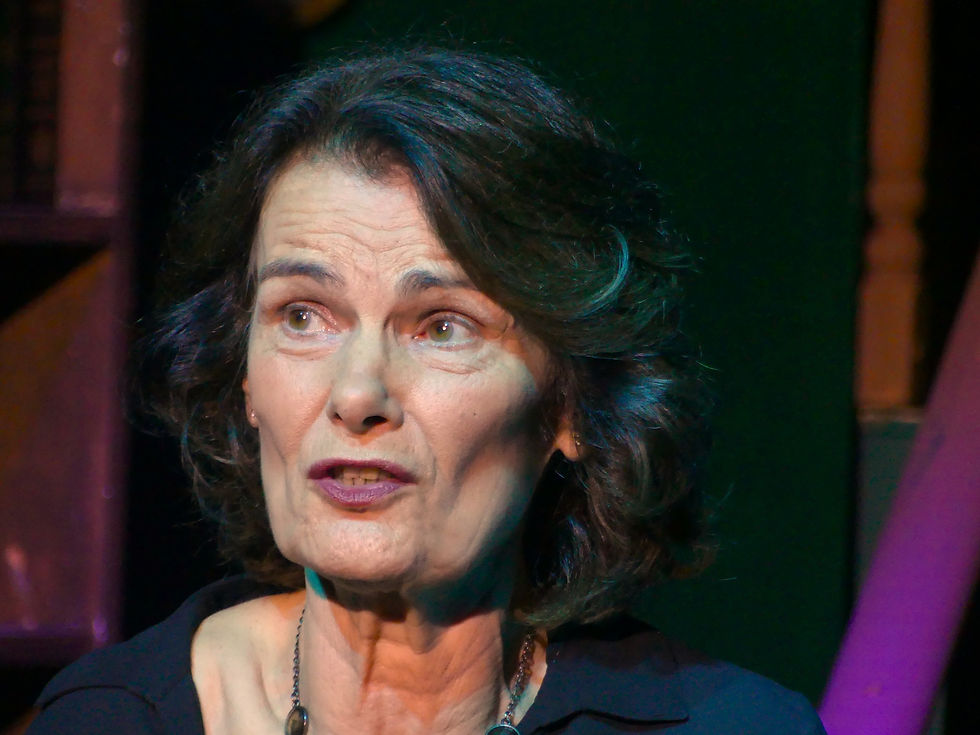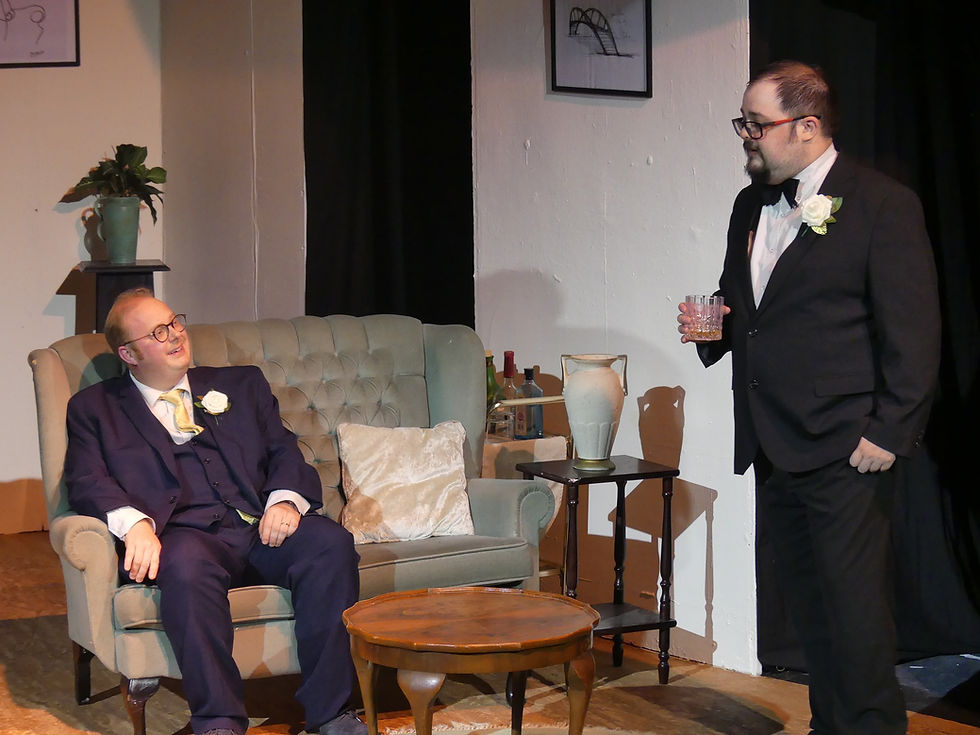Strangers on a Train. Caxton Theatre, Grimsby. 06 September 2025.
- Review Culture

- Sep 6, 2025
- 3 min read

The Caxton Players’ latest production runs from 06 - 13 September and is written by Craig Warner, based on the novel by Patricia Highsmith. The story may be best known to fans of Alfred Hitchcock for his 1951 film of the same name. While this version for the stage is not without its challenges—at times sluggish and lacking in character development—these limitations come from the adaptation itself rather than the company’s execution. In that light, it is worth recognising the cast and crew’s efforts in tackling a script that is not the easiest to bring to life.

The story follows two strangers who meet on a train: Guy Haines, an architect traveling to divorce his unfaithful wife, and Charles Bruno, a charming yet unhinged drunk. During their conversation, Bruno proposes a chilling idea—they should “swap” murders, ensuring neither will be suspected. When one killing is carried out, the scheme appears to work. But the other crime is not one Guy ever agreed to, drawing him into a sinister web of manipulation and deceit. As the pressure mounts, the once-innocent architect finds himself ensnared in a deadly trap, his orderly life unravelling beyond repair.

Director John Fergusson has made a number of bold decisions concerning this production. Firstly, he updates its setting from the 1950s to the modern day. Secondly, although the action is set in America, the cast perform with their own British accents, and thirdly, the role of Charles Bruno is subject to gender-blind casting. These choices give the production a distinctive stamp, even if they occasionally ask the audience to adjust their expectations.

Leading the cast is Lily Pullen, whose wild, boozy, and unhinged turn as spoiled Mama’s boy Charles Bruno dominates the show. At times the drunken outbursts teeter on excess, but the unsettling energy injects menace into Bruno’s forced friendship with Guy. Pullen delivers charisma and emotion, and although the gender-blind casting may take some adjustment, her commitment and intensity deserve recognition.

Adam Stevenson embodies the stoic architect Guy Haines, an everyman with whom the audience is meant to sympathise. His hangdog expression works well in the role. From the outset, Guy is a browbeaten intellectual, reading Plato, struggling in an unhappy marriage, and weighed down by career pressures. Stevenson captures the sense of a man easily manipulated and reluctantly swept into Bruno’s plot.

Prosper Jackson, as Guy’s friend Frank Myers, makes the most of their brief stage time with ominous hints of what’s to come. Jackson brings a relatable, “blokey” quality to the role and plays the irritating but well-meaning friend effectively.

Marie Barker brings elegance and depth to Bruno’s mother, Elsie. As a devoted socialite whose love for her son is tested by the unfolding events, Barker efficiently conveys the complex conflict between maternal devotion and rising anxiety.

Jessica Howden grounds the chaos as Anne Faulkner, Guy’s steady, clear-headed girlfriend. With refinement and dignity, she provides a much-needed anchor to Guy’s increasingly chaotic life. Her presence helps balance the darker elements of the story. This understated performance contrasts well with some of the manic turns taken by the script.

Ryan Sowerby lends quiet support as Robert Treacher, Guy’s business partner and longest-standing friend, delivering a credible performance. In addition, Sowerby also worked as Assistant Stage Manager, supporting Kimi Vora, who also makes a brief cameo appearance within the play—an impressive doubling of responsibilities.

Martyn Traylen shines as Arthur Gerard, Elsie’s ex-police officer friend, turned private investigator. His unraveling of the murders is spot-on, balancing humour with sharp detective instincts, and lending the production its intellectual punch. His performance evokes shades of Peter Falk’s Columbo, bringing both charm and tenacity.

Fans of mysteries and thrillers will, hopefully, be able to look past the drawn-out pace of Craig Warner’s script as the dastardly goings-on unfold. Fergusson has commendably streamlined a play that usually runs close to three hours into just over two. While the script’s melodrama occasionally weighs the production down, the company’s commitment and energy are clear. One suspects that as the run continues, the cast will settle further into their roles, allowing the thriller elements to shine through more and giving audiences a rewarding experience.
Andy Evans 06 July 2025



Comments